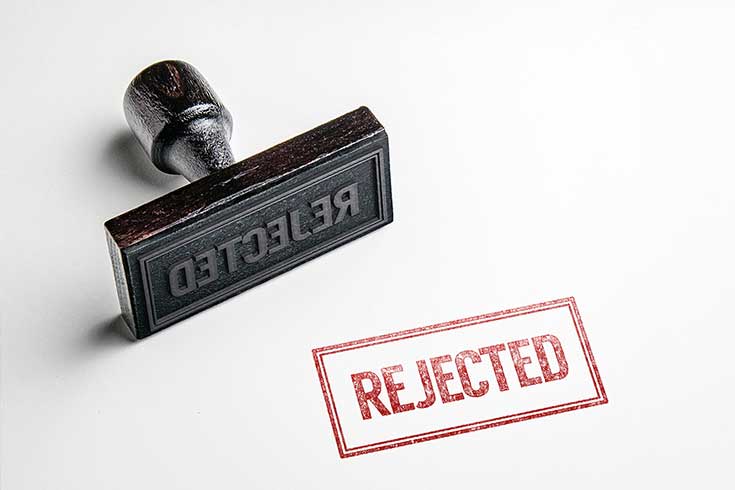'6 Cases Where Defamation is Not Recognized: An Explanation by a Lawyer'

The term “honor” in defamation refers to external honor, which means the evaluation given by society to an individual. Therefore, to defame someone’s honor means to lower their social evaluation. This is the same in both the Japanese Penal Code and the Japanese Civil Code.
Since social evaluation is intangible, it is difficult to prove that it has actually been lowered. Therefore, in both the Japanese Penal Code and the Japanese Civil Code, it is not necessary to have actually lowered a person’s social evaluation. It is sufficient to have created the risk of doing so. Although defamation seems to be broadly defined at first glance, there are many cases where it was judged not to constitute defamation in actual incidents. In this article, let’s look at six examples where it was judged not to constitute defamation.
Case Where Defamation Requirements Were Not Met
There was a case where the plaintiff sought damages and deletion of an article, claiming that the defendant had posted defamatory statements on their own website about the history of a past lawsuit between the plaintiff and the defendant.
The defendant continued to insult the plaintiff with phrases such as “villains,” “that heinous copyright infringement case,” and “B’s mental state is not normal.” However, the Tokyo District Court did not recognize defamation, stating:
“There are few parts where the plaintiff’s actions are evaluated by indicating detailed specific facts,” “The plaintiff’s name is not shown and is expressed in a pseudonym,” and “The entire text, including the above phrases, explains the history of the lawsuit between the plaintiff and the defendant from the defendant’s perspective.”
Tokyo District Court, June 16, 2015
However, the court ruled that “it should be evaluated as an aggressive expression against the plaintiff’s personality that exceeds the legitimate range of opinion or criticism, and when looking at each phrase as a whole, it can be said that it is inappropriate and inappropriate. Therefore, it is appropriate to recognize that the defendant Y1’s actions are illegal acts that infringe on the plaintiff’s sense of honor to an extent that cannot be overlooked in social common sense,” and acknowledged the defamation, as well as ordering the payment of 300,000 yen in damages and the deletion of the article. Even if defamation is not recognized, infringement of honor may be recognized.
Instances Where Alleged Facts Were Deemed True

In January 2011, Yukio Edano, then acting chairman of the Democratic Party’s Policy Research Council, filed a lawsuit seeking 10 million yen in damages from each of the publishers, Shinchosha and Bungeishunju, claiming that his reputation had been damaged by reports in the “Weekly Shincho” and “Weekly Bunshun” that he had sexually harassed a female reporter from the Japanese Economic Newspaper. In June 2012, the Tokyo District Court ruled that the key parts of the articles were true and dismissed the plaintiff’s claim.
In the judgment, it was stated:
In this case, the reporter herself testified during the witness examination that she did not feel victimized by sexual harassment due to the remarks in question. In that sense, there is room for doubt in definitively labeling the remarks as sexual harassment against the reporter. However, the reason why the Bunshun and Shincho articles in question lowered the plaintiff’s social evaluation is not because the remarks caused discomfort to the female reporter, but because the objective fact that the plaintiff, who is at the core of the government as Chief Cabinet Secretary, made remarks that could be taken as sexual harassment at an official social gathering, casts doubt on the plaintiff’s judgment as a politician and as a person.
Tokyo District Court, June 12, 2012 Judgment
This is an example where a claim for damages based on defamation was not recognized because there was proof of truthfulness.
Case Where the Degree of Social Reputation Decline Was Deemed Not to Exceed the Limit
In a lawsuit brought against Fujitsu by fund managers who claimed that Fujitsu’s statements about investment funds with whom the company’s CEO had a relationship, such as “suspected of having ties with antisocial forces,” amounted to defamation, the Tokyo District Court ruled in July 2011 that the degree of decline in social reputation did not exceed the limit, and dismissed the plaintiffs’ claims.
In the judgment, it was stated:
“At the time of the press conference in question, the defendants distributed a document to the attendees asking for their cooperation to prevent damage to the reputation of specific companies or individuals in their reporting… It can be said that the defendants were careful and appropriately considerate not to lower the plaintiffs’ social reputation by the expression in question. Furthermore, the content of the expression in question essentially only goes as far as expressing Fujitsu’s view that there is information and materials that raise suspicions about the plaintiffs’ relationship with antisocial forces, and that Fujitsu does not wish for ‘A’ to continue a close relationship with these individuals. It does not actively and specifically state that the plaintiffs actually have a relationship with antisocial forces.”
Tokyo District Court, July 19, 2011 Judgment
Therefore, it was concluded that “under the circumstances where the defendant company was required to fulfill its duty of explanation as a corporation, the content and method of expression were carried out with careful and appropriate consideration not to lower the plaintiffs’ social reputation, and it does not exceed the limit that can be deemed reasonable, and it cannot be recognized as an illegal act that unjustly defames the plaintiffs’ honor.” This is a case where defamation was not recognized because the degree of decline in social reputation did not exceed the limit.
Case Where the Credibility of the Investigation Method Was Recognized

A plaintiff who runs an electronics retail business claimed that their reputation was defamed by an article published in the Nikkei Business in 2008 stating “Consumer satisfaction with after-sales service is the lowest,” and demanded damages based on tort and the publication of an apology.
The Tokyo District Court stated,
“The ranking table is reasonably interpreted as indicating the fact that, as a result of a survey of consumers, the plaintiff received the lowest evaluation in the electronics retail store department, and general readers can get the impression that the after-sales service provided by the plaintiff is receiving the lowest evaluation from consumers compared to other electronics retail stores, which can be said to lower the plaintiff’s social reputation.”
Tokyo District Court, December 2010
On the other hand, the court stated,
“The defendant is recognized as having published these articles solely for the purpose of serving the public interest, and it is recognized that certain considerations were made to ensure the rationality of the results in the survey method, and it is not possible to find circumstances where arbitrary survey results could occur, so it is not possible to deny the credibility of the survey results themselves.”
Tokyo District Court, December 14, 2010 Judgment
And rejected the plaintiff’s claim.
This is a case where it was not considered defamation because the article was based on data obtained under correct statistical procedures, even if it lowered social reputation, and its truthfulness and appropriateness were recognized.
Cases Deemed Not to Exceed the Scope of Opinions or Criticisms
There was a case where former House of Representatives member Muneo Suzuki claimed that his honor was defamed and his feelings of honor were violated by a newspaper advertisement with the headline “Chronic Liar”. He demanded an apology advertisement and 10 million yen in damages from Shinchosha, the publisher of “Weekly Shincho”.
The Tokyo High Court stated that the article in question criticized former Representative Suzuki as a “Chronic Liar”, and that all the facts that formed the basis for expressing the opinion could either be acknowledged as true, or there were reasonable grounds to believe they were true. The court stated:
“Although the criticism and opinion of ‘Chronic Liar’ may seem somewhat tasteless, it cannot be recognized as exceeding the scope of opinion or criticism, such as personal attacks. Therefore, it is determined that the defamation caused by this article does not constitute an illegal act as the author’s intent or negligence is denied, and the same applies to the violation of feelings of honor.”
Tokyo High Court, December 25, 2003 Judgment
The Tokyo High Court dismissed Suzuki’s claim, and the Supreme Court later decided not to accept Suzuki’s appeal, thus the judgment has been finalized.
Case Deemed Acceptable as a Counter-Argument
In a lawsuit over a dispute that occurred in the “Books and Magazines Forum” and patio of Nifty Serve, there was a case where the court recognized the legal principle of counter-argument.
According to the plaintiff A, who was a member, despite the fact that another member B repeatedly made illegal statements that were insulting or defamatory to A, Nifty ignored these statements and tacitly accepted the illegal situation. A sued Nifty for damages and demanded that B’s personal information be disclosed, as Nifty did not disclose B’s name and address as A had requested.
The Tokyo District Court stated,
“The basic principle of freedom of expression (Article 21, Paragraph 1 of the Constitution) is to counteract infringements by speech with speech. Therefore, if the victim sufficiently counters the offender and it is effective, it is possible to evaluate that the victim’s social reputation has not declined. Even in such cases, it is not appropriate to recognize the tort liability of the speaker by singling out some expressions, as it may inhibit freedom of expression.”
Tokyo District Court, August 27, 2001 Judgment
The court ruled that the defendant’s statements could be recognized as counter-arguments to the plaintiff’s statements, as the plaintiff’s counter-arguments had the effect of preventing a decline in the plaintiff’s social reputation, and the plaintiff’s statements to the defendant were recognized as being extreme and significantly insulting. Therefore, “even if the defendant’s expressions towards the plaintiff become somewhat extreme, they are permissible.” The court denied the illegality of the defendant’s statements (the legal principle of counter-argument) and dismissed the plaintiff’s claim.
Summary
It’s important to understand that just because you’ve filed a lawsuit, it doesn’t mean the court will accept all your claims, and this is not limited to defamation cases. Internet-related disputes are still a relatively new field, and there aren’t many precedents. Therefore, it’s particularly crucial to prepare carefully, strategize, and approach the lawsuit. This is why it’s necessary to consult with an experienced attorney.
Category: Internet





















